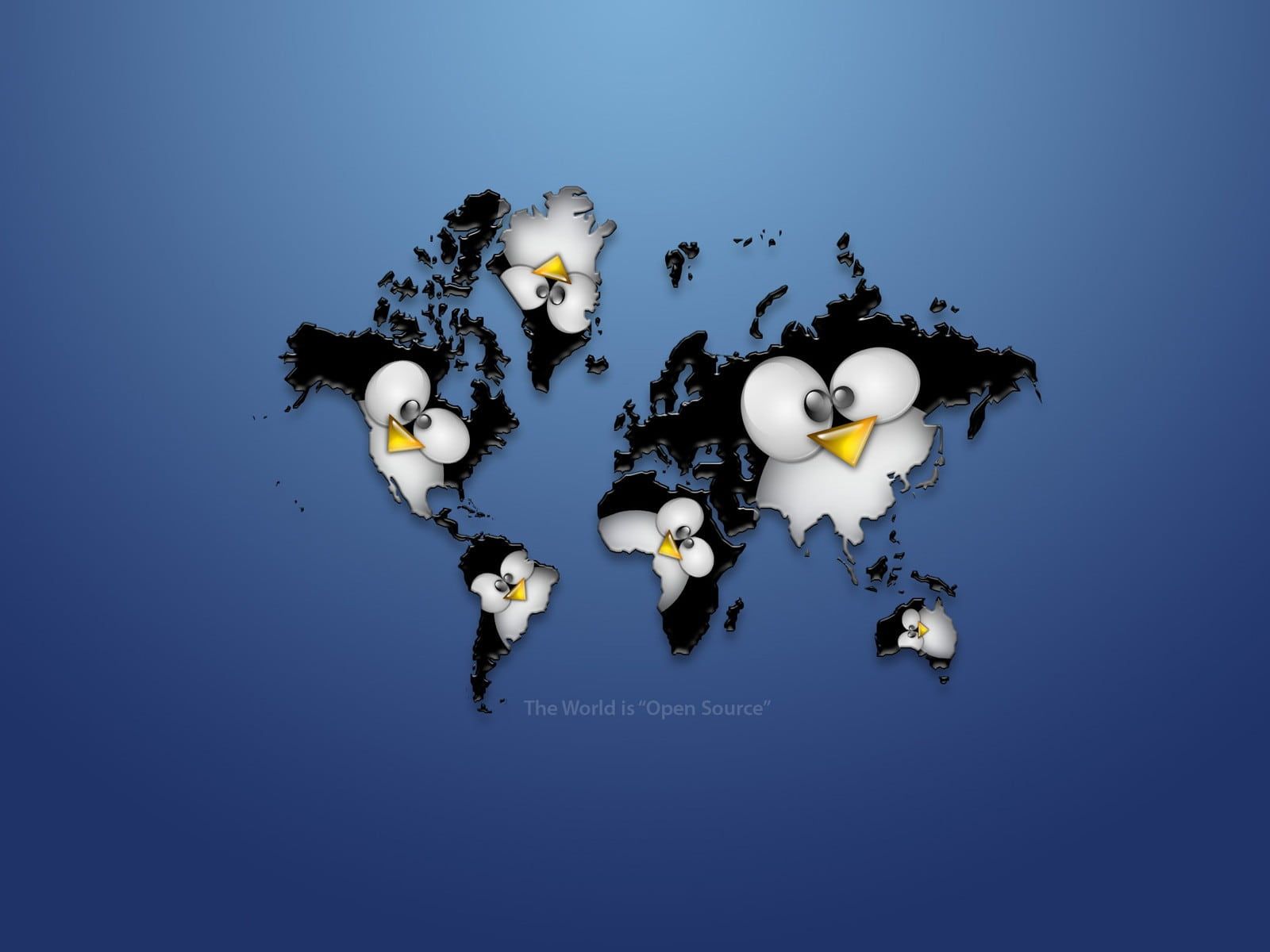A World Without Open Source

The term Open Source was coined by Christine Peterson in February 3, 1998 [1]. The Open source movement itself was pioneered by several key figures. Richard Stallman [2], who started Free Software Foundation and created the General Public License (GPL), a license which is widely used in Open Source software today. He also initiated the GNU Project with the goal of creating a completely free and open source Unix-like operating system. His work laid much of the ground of what we currently know as Open Source.
Another key figure is Linus Torvalds [3], the creator of the Linux kernel. He released the Linux kernel as a free software. This kernel, combined with the Stallman's GNU system resulted in the completely free and open source operating system we currently know as GNU/Linux. The success of Linux has been a major factor in the growth of Open Source.
We also have Eric S. Raymond [4], who's essay "The Cathedral and the Bazaar" helped articulate the principles of open source development. His advocacy efforts were influential in Netscape, one of the first browsers, to release their source code. And Bruce Perens [5], who drafted the Open Source Definition and was involved in founding the Open Source Initiative (OSI). Each of these individuals has played a key role and popularization of Open Source.
Open Source Software is a glue that holds everything together. If software built from Open Source where to magically disappear from the earth, the internet and the web would instantly evaporate. Every Android smartphone, every iPhone, iPad and Mac would go dark. The global stock markets would go offline, planes would drop from the sky, most energy infrastructures would cease to function. It would be an event on the scale similar to a world war.
Without Open Source, technology wouldn't be as accessible as we know it today. The price of education would cost a lot more than now. The global knowledge of humanity would be smaller and our overall progress, not just in software, would be much much slower. We wouldn't be able to share information freely. There wouldn't be a free youtube where you could learn something from. There wouldn't be a means where people would easily collaborate. The entire culture of collaboration has been spear headed by Open Source since it encourages everyone to modify and distribute software.
The internet as we know it today has been built on open source. From running servers on Linux, to Apache and NGINX that deliver content. Even the protocols used to send data over the internet like TCP and HTTP are open source. Without Open Source, the internet would be very expensive. Every technology used would be propriety (closed source) and systems would be less interoperable. There would probably be different "internets" owned by different entities. There wouldn't be a Google or Facebook or Amazon, since most of these tech giants rely on Open Source technologies.
Without open source there wouldn't be innovation. The fast technological advancements we see everyday, be it in health, software, engineering, electronics... non of them would have advanced at this rate if it weren't for Open Source. All these fields rely on technology that has been pioneered by Open Source developers.
This is why we should protect Open Source at all costs. The freedom we get from Open Source software is what's driving our global progress. It is what allows us to enjoy the conveniences we currently have for practically no cost. Its what helps us learn, innovate and collaborate with others. Whenever you contribute to anything Open Source, understand that you are contributing to something larger. Think of it as serving humanity and making it better with one line of code at a time.
Work with companies like Neurotech [6] that actively contribute to Open Source [7]. Build as many tools as you can and allow everyone to modify it and make it their own. Contribute to ongoing open source projects. Doing any of these will make you part of a global movement, a movement that ensures we all have the liberty with the software we use, a movement that ensures that we progress together as a globe.
References
[1] https://en.wikipedia.org/wiki/Christine_Peterson
[2] https://en.wikipedia.org/wiki/Richard_Stallman
[3] https://en.wikipedia.org/wiki/Linus_Torvalds
[4] https://en.wikipedia.org/wiki/Eric_S._Raymond
[5] https://en.wikipedia.org/wiki/Bruce_Perens
[6] https://www.neurotech.africa/
[7] https://github.com/Neurotech-HQ
